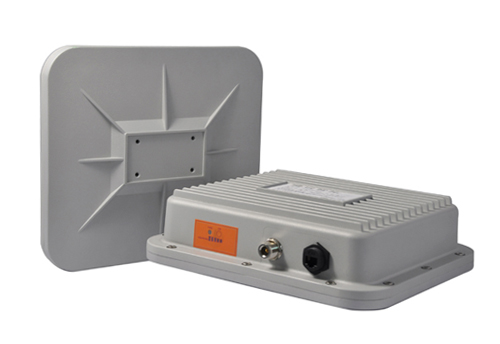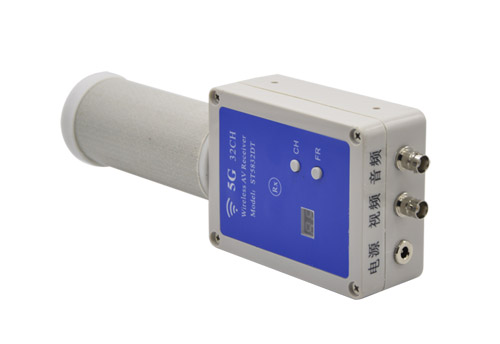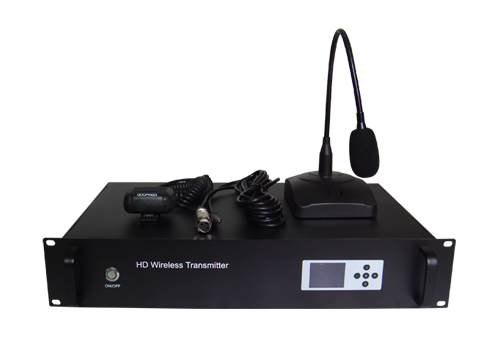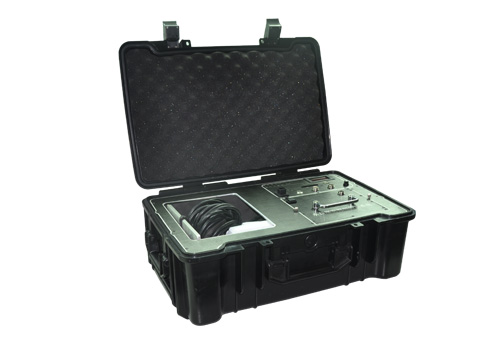Nowadays, the application of wireless monitoring is more and more extensive. Many large construction sites, forest fire protection projects, nature reserve monitoring, and emergency rescue monitoring and communications, etc., have slowly abandoned the troublesome and complicated wired video surveillance networks, and have adopted convenient and quick methods. , And more practical, flexible, more scalable wireless monitoring system.
However, for different application environments, different wireless monitoring systems are required. And one of the irreplaceable parts of the wireless surveillance system is wireless transmission equipment. With less wireless transmission equipment, it is just a simple monitoring system.
According to the market demand, wireless transmission equipment is divided into four major categories, which also means that the wireless monitoring system is also divided into four.
So, what is the so-called long-distance wireless monitoring system ?
In simple terms, it is a wireless remote monitoring system using wireless transmission equipment and corresponding monitoring equipment. The word "distance" is highlighted here to distinguish the wireless surveillance cameras currently on the market.
This type of wireless surveillance camera uses a WIFI signal connection method to connect directly to the Internet. Users can access the Internet link device through the client for remote monitoring. Although this is regarded as a kind of wireless monitoring, but this type of equipment is mostly used for home and individual users. It is not the scope of the “distant†wireless monitoring system we introduce today.
Returning to the topic, the four major types of wireless transmission devices just mentioned are the following types:
I. Digital microwave wireless transmission equipment
That is, we often say that the wireless bridge, wireless bridge is the use of digital wireless microwave connection of the two network devices, so there is a wireless "bridge" this title.
Wireless bridges can not only transmit network signals, but also transmit digital signals in surveillance systems, such as digital signals from network surveillance cameras and microphones. Although there are many analog cameras on the market, only adding a transcoder to the system will allow analog signals to be converted to digital signals to be transmitted through wireless bridges.
So, what engineering environment can wireless bridges use?
Here, we first mention the advantages and disadvantages of wireless bridges.
Advantages: long transmission distance, high bandwidth, convenient networking, and strong anti-interference ability.
Disadvantages: Fixed-point transmission, the need to maintain unobstructed objects between wireless bridges.
Transmission distance: 100 km point-to-point, on behalf of equipment: high-power wireless bridge ST5023PRO; relay 200 km, on behalf of the equipment: long-range wireless bridge ST5801GB-M.

Wireless bridge
From this, it can be judged that wireless bridges can be used in long-distance wireless monitoring projects such as fixed-point monitoring on the site, forest-based point monitoring, river basin monitoring, etc., inconvenient wiring, and fixed monitoring points.
Second, analog microwave wireless transmission equipment
Analog microwave wireless transmission is a device for transmitting analog signals. Since analog monitoring devices on the market are banned by digital monitoring devices year by year, and the analog signals are easily subjected to external interference, resulting in the occurrence of monitoring image distortions and other undesirable phenomena, so analog microwave wireless transmission The market for equipment is also worse than before, showing a gradual narrowing trend.
However, the analog microwave wireless transmission device has an advantage that it is not surpassed by the digital microwave transmission device at that time, and that is, the price is cheap enough.
Here also talk about its advantages and disadvantages.
Advantages: cheap equipment, high bandwidth, easy networking.
Disadvantages: The transmission distance is short, the anti-interference ability is poor, fixed point transmission, and transmission can not have obstacles.
Transmission distance: 1-10 km point to point, representing equipment ST5832DT.

From this, it can be judged that this type of equipment is widely used in long-distance wireless monitoring engineering environments such as elevator shafts, wide field environments, and the like, with a short transmission distance, less interference, and less user budget.
Third, COFDM mobile video wireless transmission equipment
In fact, this kind of equipment is also used to transmit digital signals. However, why is it not classified in the category of digital microwave radio transmission equipment, but it is divided into a single category? The reason is that it uses a unique encoding technology - COFDM (Coded Orthogonal Frequency Division Multiplexing) technology.
This kind of technology is still quite complicated to explain. If you are interested, you can find out what you mean by yourself. I will introduce here the part that users are concerned about, that is, what are the advantages and disadvantages of using this kind of equipment.
Advantages: strong signal diffraction, strong anti-interference ability, transmission signal occupying low bandwidth, can be configured in a mobile environment.
Disadvantages: High equipment prices.
Transmission distance: 100 km under the visual environment, on behalf of the equipment ST6240CZ-HD; drone visual environment 50 km, on behalf of the equipment ST6200TPS-HD.

After seeing the advantages and disadvantages, there is a spectrum compared to everyone. Yes, the big reason that this type of device is divided into a single category is that it supports mobile video transmission. In other words, it can be applied to vehicles, boats, drones, personal carrying and other environments in high-speed driving. Commonly used in nature reserves, cities, road traffic, maritime, border defense and other environments, live broadcast, drone shooting and other long-distance wireless monitoring projects.
Fourth, 3G, 4G long distance wireless monitoring equipment
I believe that most people are familiar with 3G and 4G signals. Yes, this kind of equipment uses 3G and 4G networks for long-distance wireless monitoring. In fact, these devices are similar to the advantages of the wireless surveillance cameras mentioned above. They are all directly connected to the Internet and carry information through the Internet. But the difference is that wireless surveillance cameras use one WIFI signal transmission device, such as wireless routing; while 3G and 4G remote wireless monitoring devices can use 3G and 4G signals to directly connect to the Internet, and users at the monitoring end can log on to the Internet client. For long distance wireless monitoring.
The advantages and disadvantages of this type of equipment are as follows:
Advantages: Not limited by distance, as long as there are 3G, 4G network can be used, convenient, no need to layout, can be put into use directly, strong anti-interference ability, high transmission bandwidth, speed.
Disadvantages: The equipment is expensive and can only be used where there are 3G and 4G signals. This will result in network traffic charges.
Transmission distance: unlimited, representative equipment: ST6030BX-4C-G4.

It can be seen from the advantages and disadvantages that such devices can be used at any time in environments with 3G and 4G networks, but conversely it is impossible to use them in some wild and remote environments with 3G and 4G networks. Coupled with the high price of such equipment, the use of a relatively narrow environment. It is often used in long-distance wireless monitoring projects such as emergency rescue operations and the establishment of temporary communication centers.
HVOF Powder,Chromium Carbide Powder,Chromium Carbide Coating,Chromium Carbide Thermal Spray Powder
Luoyang Golden Egret Geotools Co., Ltd , https://www.xtchvof.com
